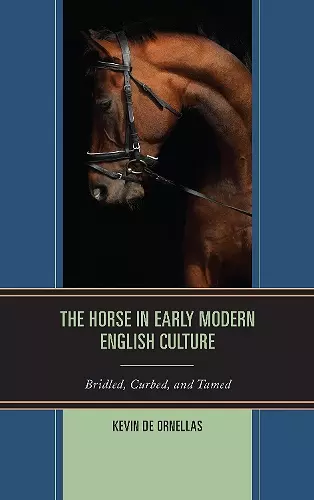The Horse in Early Modern English Culture
Bridled, Curbed, and Tamed
Format:Hardback
Publisher:Associated University Presses
Published:18th Nov '13
Currently unavailable, and unfortunately no date known when it will be back

Kevin De Ornellas argues that in Renaissance England the relationship between horse and rider works as an unambiguous symbol of domination by the strong over the weak. There was little sentimental concern for animal welfare, leading to the routine abuse of the material animal. This unproblematic, practical exploitation of the horse led to the currency of the horse/rider relationship as a trope or symbol of exploitation in the literature of the period. Engaging with fiction, plays, poems, and non-fictional prose works of late Tudor and early Stuart England, De Ornellas demonstrates that the horse—a bridled, unwilling slave—becomes a yardstick against which the oppression of England’s poor, women, increasingly uninfluential clergyman, and deluded gamblers is measured. The status of the bitted, harnessed horse was a low one in early modern England—to be compared to such a beast is a demonstration of inferiority and subjugation. To think anything else is to be naïve about the realities of horse management in the period and is to be naïve about the realities of the exploitation of horses and other mammals in the present-day world.
Each chapter contains a wealth of contextual and textual references, and De Ornellas characteristically moves across a variety of forms of writing and historical evidence. . . .There is analysis in each chapter that illuminates the main texts considered (the reading of Shirley’s Hide Park is particularly successful and stimulating) and that enables greater understanding of the importance of horse talk. * Renaissance Quarterly *
ISBN: 9781611476583
Dimensions: 234mm x 158mm x 23mm
Weight: 526g
234 pages